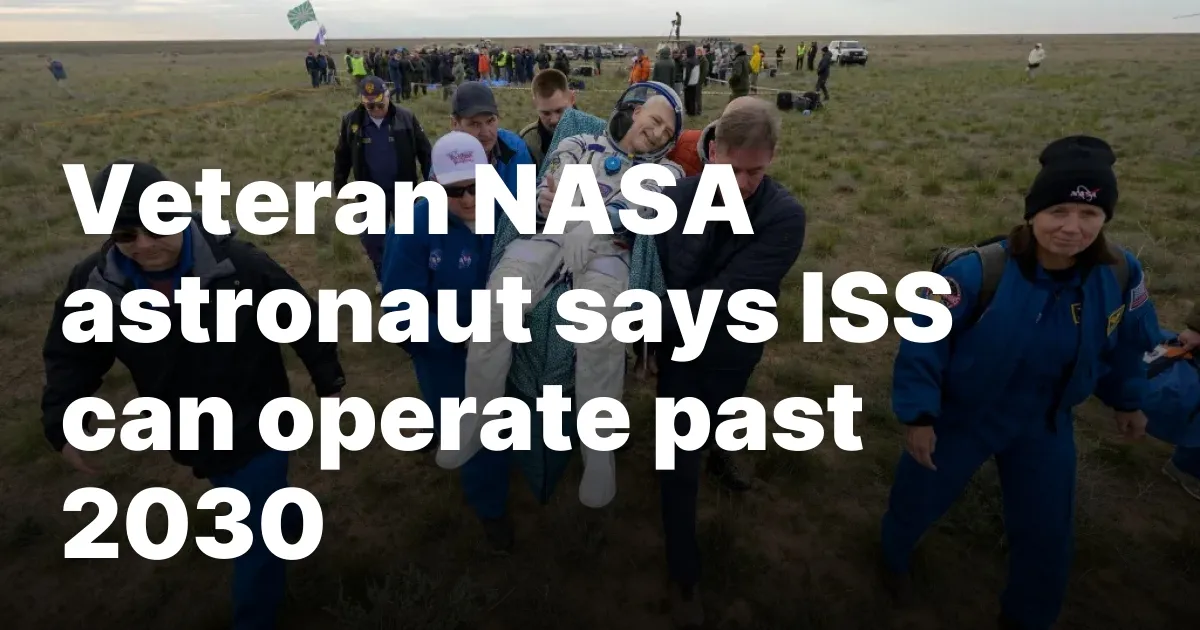
Washington — A veteran NASA astronaut, Don Pettit, who recently returned from the International Space Station (ISS), believes that the facility can continue to operate well beyond its planned retirement date of 2030. Pettit, who completed his third long-duration expedition to the ISS, shared his insights and experiences during a press conference held on April 28.
Don Pettit returned to Earth on April 19 (U.S. time) aboard a Soyuz spacecraft after spending an impressive 220 days in space during this mission. Over the course of his career, Pettit has amassed a total of 590 days in orbit, placing him third among American astronauts, following Peggy Whitson and Suni Williams. His time in space spans three expeditions, with missions conducted between 2002-2003, 2011-2012, and the recent 2024-2025 mission.
Reflecting on his first mission to the ISS, Pettit likened the experience to living in a home while it is still being constructed. At that time, NASA was still learning how to efficiently manage the space station. “It’s like living in your house when you’re trying to build it,” he remarked, emphasizing the significant evolution of the ISS since its early assembly days. Today, he describes the ISS as a “well-oiled machine,” equipped with advanced capabilities and resources for both living and conducting research.
Despite NASA's plans to retire the ISS at the end of the decade, Pettit contends that there is no technical reason to end its operations. He stated, “I’m a firm believer we don’t need to dump the ISS into the ocean in 2030 if we don’t want to.” Drawing a parallel to the B-52 bomber, which remains operational despite being built over 60 years ago, Pettit emphasized that the only limitations to extending the ISS’s life lie in the willingness to refurbish it and secure necessary funding.
He pointed out ongoing efforts to enhance the station’s original solar arrays with smaller yet more efficient ones, suggesting that with continued investment, the ISS could remain functional for as long as desired. “We can keep the ISS going for as long as we want,” he concluded.
Pettit’s optimistic view contrasts sharply with the concerns expressed by NASA’s safety panel. Rich Williams, a member of the Aerospace Safety Advisory Panel, stated during an April 17 meeting that the ISS has entered the "riskiest period of its existence." He highlighted issues such as cracks in a Russian module, uncertainties regarding deorbit plans, and budget constraints as significant risks to the ISS’s future.
Pettit’s desire to keep the ISS operational also conflicts with NASA’s ongoing transition to commercial space stations. Industry stakeholders are advocating for a firm retirement date for the ISS to provide certainty for their investors and customers. Pettit acknowledged these challenges but maintained his belief in the potential for further ISS missions.
After completing his latest long-duration spaceflight, Pettit reported that he is recovering well, although he experienced challenges upon re-entry. “I didn’t look too good because I didn’t feel too good,” he admitted, recalling the difficulties he faced, including “emptying the contents of my stomach” after landing. He attributed these challenges to his physiology, noting that the adjustment back to Earth can be significant for astronauts.
As he celebrated his 70th birthday on April 20, Pettit expressed no desire to retire. Instead, he stated, “I’m ready to go back when the flight docs say I’m ready to go back.” He believes he still has a few more good years left in his career and is open to the possibility of undertaking another flight or two in the future, showcasing his enduring passion for space exploration.